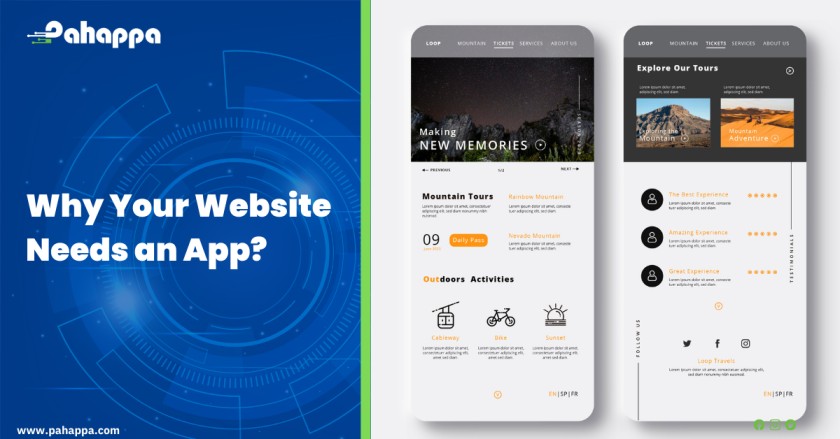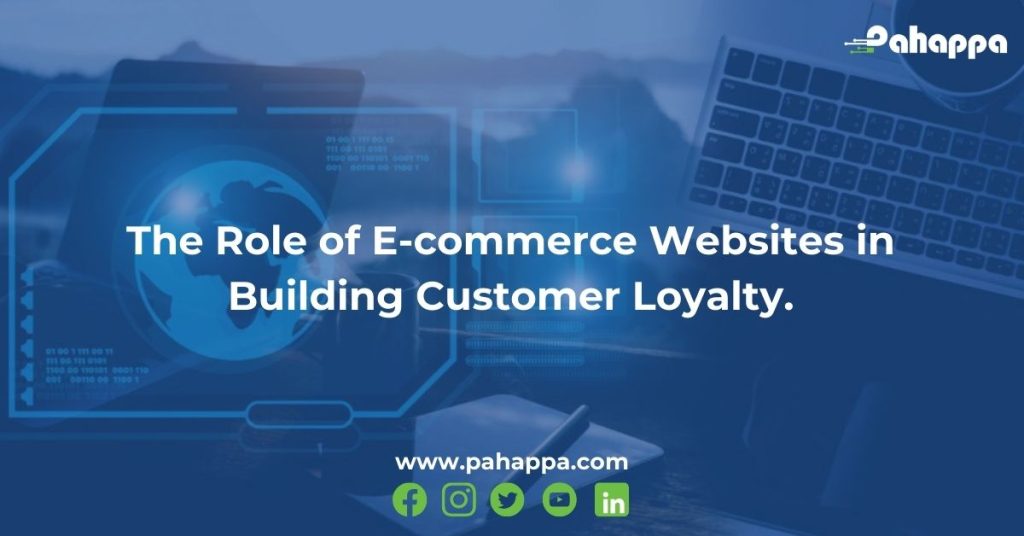In the beginning, websites were only considered as virtual marketing brochures. If you had a business, a website would serve as an indication that you were updated with technology. But as social media began to grow in popularity and digital technology shifted towards mobile communication, the website began to undergo its evolution and became a “Digital Marketing Universe” and this meant that leads generated by inbound traffic could be converted into sales.
This became a game-changer as technology made delivery of things fast and shopping was not an exception. Going to a website, and purchasing a product or service may take longer than expected. But if you have an avid application for a specific business, it’ll probably save clients’ time. Therefore, an app comes up with a quick and user-friendly interface that helps them make a fast purchase.
Throughout the evolution of the website, there have been discussions among SEO professionals on whether mobile responsiveness was enough to stay competitive. Despite its benefits, there have been also problems with having a responsive website design.
First and foremost is download speed. Mobile responsive design takes longer to download thanks to the way it’s built. Some users are required to download useless HTML/CSS codes while for others the pictures are stretched and not re-sized which negatively affects loading time.
The second factor is behavioural. Studies have shown that Internet users who search from a mobile gadget are in a very different place within the sales funnel than those that are searching from a desktop. per ComScore, 70% of mobile searchers can walk into a store and buy after browsing with their phone.
It would seem that for these two factors alone, a mobile responsive website by itself wouldn’t ensure your competitiveness within the search rankings. The repercussions are greater if you have got an e-commerce online business. Your immediate concern is sales conversion which can mean finding an alternative to increase sales.
The best solution would be to own a mobile application for your mobile responsive website. Here are five good reasons why your website needs a mobile app:
- Greater conversion rate
- Build a more competitive brand
- Faster speed
- More accessible
- Preferred by mobile users
Greater Conversion Rate
Having a mobile app gives you an on-the-spot advantage thanks to convenience. A mobile app simplifies the method. If you were within the food business and had a mobile app for delivery service, your customers wouldn’t have to go to your website to place an order. The convenience ends up in higher conversion rates for mobile apps.
Build a More Competitive Brand
A mobile app will improve and strengthen your brand because it comes with built-in features that may allow you to attach your marketing efforts to your target market.
For example, you’ll be able to have a mobile app that contains a built-in feature for quicker access to customer service. If your customer is experiencing problems or issues regarding your product, pproviding him with quicker access to your support team would help build better relations and strengthen existing ones.
Faster Speed
As mentioned, it takes more time to download a mobile responsive website. With the mobile app, you only have to download it once and it’ll get on your smartphone.
If you wish to use it, simply click the app icon to launch on your smartphone. Convenience is defined in a variety of ways; speed is unquestionably one of them. If you’ve a mobile responsive-website, having an option for a mobile app addresses the slow download time.
More Accessible
The mobile app may be found on the interface of your smartphone. Anytime you wish to use it, all you would like to try and do is click or tap on the app icon.
The best part is your clients don’t need an Internet connection to access your mobile app. They’ll be able to use the mobile app even when offline. Hence, a mobile app gives greater flexibility and mobility to access your products and services by users.
Preferred By Mobile Users
In a study by ComScore, data showed that mobile users preferred the mobile app over the mobile responsive website.
Mobile users spent a mean time of 94 minutes per day on the mobile app compared to 72 minutes on the web. This is often a major difference from 31% per day.
By building a mobile app in addition to your mobile responsive website, you’re providing a replacement avenue for end-users and prospective customers to find out more about your business.
A mobile app increases visibility and market awareness for your products and services. It also sends a robust message to your market that you simply are updated on the most recent technological advances.
Conclusion
Mobile apps contain great prospects for an eCommerce business increase. It is important to understand that with an app, a client does not need to remember the complicated website URL.
It is more important to have a mobile app developed than to only build a mobile responsive website or a frenzied mobile website. But the investment you’ll make on a mobile app will certainly carry over to your website. It is an investment which will address the problems associated with the mobile responsive website. By having a mobile app, you’ll directly contribute to the mobile user experience of your customer.
Apart from remunerating a mobile site’s downsides, apps provide great usability, approachability, and performance for higher conversion rates.
If you are not sure where to start, Pahappa has developed apps to suit different market needs ranging from ecommerce to organizations as well as for people who offer professional services. In case you want to have a mobile app for your business, don’t hesitate to contact us as we are ready to provide you with solutions that address your needs.











